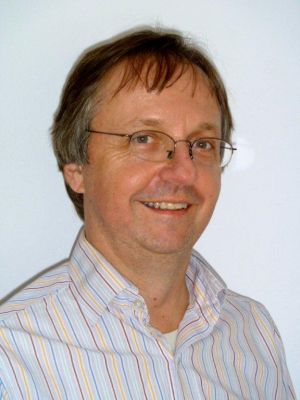Advents not Adverts

I haven't made enough of the ancient wisdom of Advent, and neither has the world. At home we are being encouraged by our children to buy them Advent calendars. I might get them to meditate slowly on each daily chocolate this year as a way of slowing down.
Waiting for the birth of our children was a profoundly moving experience; I longed to see what they would look like. This is the waiting of Advent, as Mary waited for the birth of the Son of God.
Our lives are not generally shaped by waiting, but I think they are shaped by impatient forms of watching and grasping. Advent is an opportunity to slow down and examine these hidden patterns in us. This Advent I am going to try the deep watchful turning that Jesus calls for at the beginning of Mark's Gospel, often translated as 'repent.' This is a series of advents. For it to mean something, I have to understand what I am turning from.
Most of the time my watching, and yours, is fearful and anxious. I am looking fearfully to save myself. 'For whoever wants to save his life will lose it, but whoever loses his life for me and for the gospel will save it' (Mark 8:35). I have to notice that fearful and anxious watching, so often something I do automatically, and turn away from it.
Most of the time my watching, and yours – especially as we approach Christmas, is acquisitive. I have swallowed the lie of our consumer culture that I am empty unless I fill my sense of self with things. Deep down I desire to 'gain the whole world' (Mark 8:36), and yet I refuse to own that desire openly. The fantasy of winning the lottery, which offers the whole world to us on a plate, is often laid before us as a temptation. I have to notice this acquisitive watching, so much a concealed pattern of my life, and turn away from it.
Most of the time my watching, and yours, is competitive. In that we are not alone: the disciples were there before us. 'They came to Capernaum. When he was in the house, he asked them, "What were you arguing about on the road?" But they kept quiet because on the way they had argued about who was the greatest' (Mark 9:33-34). We would really quite like to be the greatest, to have fame, celebrity and success, and so much of our watching of others is competitive, judgemental and making comparisons. This Advent I need to notice that competitive watching, and turn away from it.
But it wasn't just the disciples who were attentively watching in the wrong way and who needed a deep turning from anxiety and fear, acquisitiveness and competitiveness. As we watch events unfold in the Middle East, there is another watching that we need to turn from.
'Another time he went into the synagogue, and a man with a shrivelled hand was there. Some of them were looking for a reason to accuse Jesus, so they watched him closely to see if he would heal him on the Sabbath' (Mark 3:1-2).
Most of the time my watching of the world is suspicious and distorted. I do not see people as they truly are. My distorted suspicions harden my heart. This Advent I need to turn from my suspicious watching to a deeper watching.
Jesus is the master and commander of attention and awareness. We need to turn from our fragmented and distorted watching to his luminous watching. As Jesus passed by the Sea of Galilee he 'saw' Simon and his brother Andrew (Mark 1:16). This is a deep watching that sees their potential, the possibilities within them that can be remade so that they search for others (Mark 1:17). They follow him immediately because they have been gazed upon with love by the Son of God. As we slow down and examine ourselves we suddenly find ourselves gazed upon with love by God.
How do we turn from our anxious, acquisitive, competitive watching to the hope-filled watching modelled by Jesus? The crucible that develops this awareness and attention is the crucible of prayer. This is also modelled for us by Jesus.
'Very early in the morning, while it was still dark, Jesus got up, left the house and went off to a solitary place, where he prayed' (Mark 1:35). In this place of silence, solitude and listening to God, we wait. We hear the good news that the 'kingdom of God is near' (Mark 1:15).
We are like the disciples in that we need to hear the lament of Jesus, 'Do you still not see or understand? Are your hearts hardened? Do you have eyes but fail to see, and ears but fail to hear?' (Mark 8:17-18). I know I haven't let the fullness of the kingdom live in me, but I want the gates of the kingdom to be opened in my heart and mind.
When we understand our blindness it is then we can come to Jesus, like Bartimaeus.
'What do you want me to do for you?' Jesus asked him. The blind man said, 'Rabbi, I want to see' (Mark 10:51)
Bartimaeus saw with new eyes, but not just in a physical way, but also in a spiritual way. He followed Jesus 'on the way.' When we are fully aware of what God is doing then we follow him along the way. Along the way to life in all its fullness. In that fullness we have a new relationship with ourselves, with God, with others and with the world. And a new way of seeing.
Shaun Lambert, is Senior Minister of Stanmore Baptist Church, and part of the New Wine leader's network, and PREMIER Mind and Soul network, and the author of A Book of Sparks, A Study in Christian MindFullness, published by Instant Apostle www.instantapostle.com











